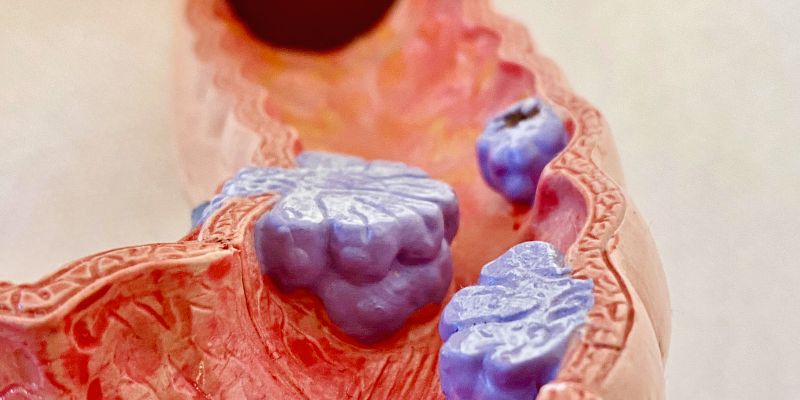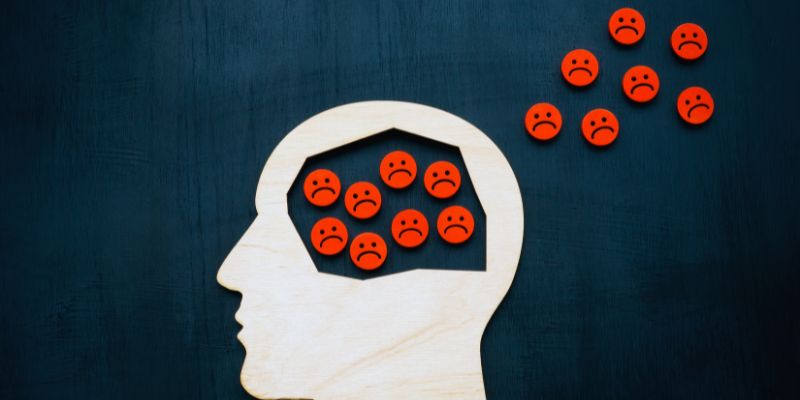Most people have back pain at some point; it can afflict anyone at any time. Back pain can interfere with daily living and make routine chores seem difficult, regardless of the degree of dull soreness or acute anguish. While many people seek physical therapies such as medicine, exercise, or therapy, others investigate the psychological facets of pain control. Emotional pressure, anxiety, and stress can aggravate or even start pain.
It has piqued increasing interest in treatments addressing the body and psyche. But is a mixed approach the secret to long-lasting alleviation, or is emphasizing just one enough? Knowing the link between mental and physical health will help one find better ways to control back pain. Let's investigate how treating the mind and body, or combined, could bring the needed relief.

The Role of the Body in Back Pain
Back pain development is largely influenced by the body. Many cases connect to injury, spinal misalignment, or muscular strain. Poor posture, improper lifting of large objects, or prolonged sitting can all cause the muscles in the back to either become tight or weak. These physical factors can induce inflammation, discomfort, and perhaps long-term pain. Physical therapy is a frequent approach for back discomfort since focused exercises increase flexibility and strengthen muscles. Frequent mobility helps to keep spinal integrity and lower muscle tension.
To ease pressure on nerves and lessen pain, chiropractors may also straighten spinal misalignments, sometimes called subluxations. Often used to address the physical symptoms of back pain are medications, including anti-inflammatory medicines, muscle relaxers, and painkillers. Sometimes, surgical possibilities could be reviewed if the discomfort is severe or recurring. Procedures used in surgery could be spinal fusion, disc replacement, or decompression.
The Impact of the Mind on Back Pain
Although physical therapies center on the body, mental health can also be important for back discomfort. Many times, chronic pain disorders are associated with stress, anxiety, and depression. A person's body tenses under stress, aggravating muscular pain. Mental strain can also influence a person's perception and response to physical suffering, intensifying the experience. Studies have found that depressed people are more likely to have continuous back pain. That is so because alterations in brain interpretation of pain signals might result from emotional upheaval.
Anxiety can increase pain sensitivity; depression might lower the drive to remain active or follow treatments meant to aid with pain. Mind-body therapies seek to target these psychological and emotional elements. Among the most successful treatments for controlling stress, anxiety, and depression-related discomfort is cognitive-behavioral therapy (CBT). By helping individuals identify and modify bad thought patterns, CBT can help lower the emotional toll of ongoing pain.

Combining Mind and Body Treatment
Treating the body and the mind could provide the best relief from back discomfort. This all-encompassing strategy acknowledges how closely physical and mental health are entwined. When both are taken care of, the mind is more suited to deal with suffering, and the body may heal more quickly.
- Mindfulness meditation: Physical treatment and mindfulness practices can improve results. Mindfulness meditation helps people to be conscious of their bodies and free from judgment. By lowering the stress and tension that are aggravating pain, this technique can enable people to control it better.
- Yoga is yet another often-used mind-body technique. It addresses mental health and physical wellness by combining mild stretching, strengthening activities, and breath control. Studies have demonstrated that regular yoga practice improves posture, increases flexibility, and lowers stress, therefore relieving chronic back pain. Yoga is a great choice for back discomfort since it can help the mind and body balance.
- Acupuncture: Another therapy combining physical and mental health care is acupuncture. Tiny needles are passed into designated body areas to remove tension and encourage healing. Although the physical advantages are obvious, acupuncture also calms the mind, helping to lower tension and worry that could aggravate back problems.
Lifestyle Changes for Managing Back Pain
In addition to expert therapies, some lifestyle modifications can greatly reduce back discomfort. Good sleep hygiene, a balanced diet, and consistent exercise help maintain physical and psychological wellness. All of these assist in strengthening muscles, increasing flexibility, and lowering stress—all of which support a better back—and exercise helps. Another very important component in avoiding back discomfort is good posture. Those who sit or stand with poor posture may strain their back excessively, which can cause discomfort or damage.
Frequent stretching and changing seating posture help avoid muscular tension and enhance general spine condition. Additionally, nutrition is important for pain treatment. A diet high in anti-inflammatory foods—fruits, vegetables, and omega-3 fatty acids—helps lower body inflammation, relieving back discomfort. Conversely, more weight can strain the back; hence, keeping a good weight is quite important.
The Importance of a Support System
Managing the emotional toll of back pain depends on a solid support system. Many times, chronic pain causes isolation, frustration, and melancholy. Pain can emotionally tax one, making it more difficult to remain focused and upbeat. Help from family, friends, or support groups has become quite important here. Having someone to chat with can assist in lessening the mental weight of suffering by offering emotional consolation, encouragement, and a feeling of connection.
Professional support is also quite important. Developing good coping mechanisms can help by seeing a therapist or counselor focused on chronic pain. These experts provide useful instruments for controlling the psychological and physical features of suffering. Learning how to handle the psychological elements causing pain helps people better manage the stress and frustration that sometimes accompany long-term discomfort. Strong support systems enable people to feel in charge and supported all through their path of pain treatment.
Conclusion:
In conclusion, back discomfort is a complicated disorder that needs a whole approach for good management. Given the close relationship, treating the mind and the body offers the best alleviation. While mental health approaches like mindfulness and therapy target the emotional impact, physical therapies help alleviate the body's suffering. Further supporting general well-being are lifestyle adjustments like food, exercise, and correct posture. Managing physical and emotional suffering also depends critically on a robust support system—from friends or experts. Combining these techniques presents the best chances for long-lasting alleviation and better quality of life.







